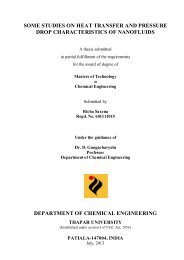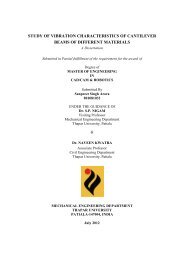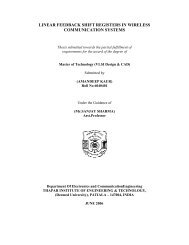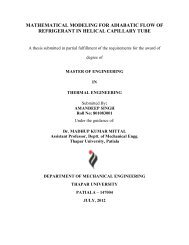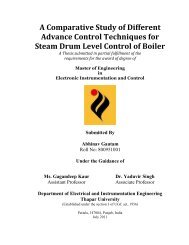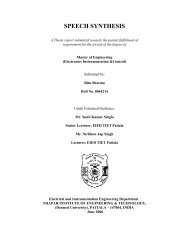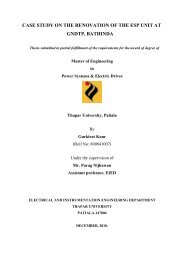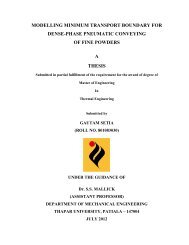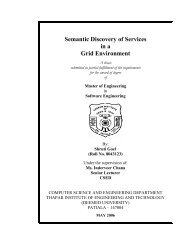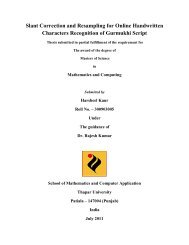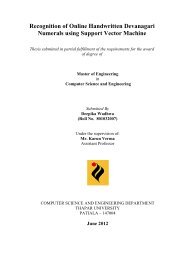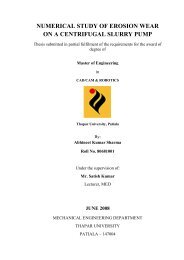from indigenous fermented foods and human gut ... - Thapar University
from indigenous fermented foods and human gut ... - Thapar University
from indigenous fermented foods and human gut ... - Thapar University
You also want an ePaper? Increase the reach of your titles
YUMPU automatically turns print PDFs into web optimized ePapers that Google loves.
102<br />
Chapter IV: Results<br />
Fig. 4.5 Scoring system for the coaggregation assay. Organisms used to illustrate the<br />
different scores were S. typhimurium ATCC 19585 together with L. casei LAM-1. (A): S.<br />
typhimurium ATCC 19585 together with L. casei LAM-1, (B): L. casei LAM-1 together<br />
with E. coli 0517: H7, (C): L. monocytogenes together with L. casei LAM-1 <strong>and</strong> (D): L.<br />
casei LAM-1 together with S. aureus. Photographs were taken on a microscope (200 x<br />
magnification).<br />
In that way, L. casei LAM-1 reached the highest score (4) in co-aggregation with<br />
these foodborne pathogen strains. L. fermentum co-aggregated with S. typhimurium with a<br />
score of 3 (Table 4.20). After Gram staining, it was verified by light microscopy that<br />
aggregates comprised of Gram-positive as well as Gram-negative bacteria.<br />
4.8.4 Adhesion of Lactobacillus strains to Caco2 cells<br />
The probiotic Lactobacillus strains were investigated for their ability to adhere to the<br />
<strong>human</strong> intestinal epithelial CaCo2 cells. L. casei (LAM-1) posses high adhesion. Gram<br />
staining of the slides enabled adherent bacterial strains to be clearly visible as dark purple<br />
rods on a pale pink cell background (Fig. 4.6).<br />
L. casei LAM-1 was characterised as non-adhesive wheras L. delbruckeii, showed moderate<br />
adherence. Interestingly, the L. casei LAM-1 <strong>and</strong> LAM-2 isolated <strong>from</strong> mango pickle showed<br />
a much higher adhesive index.



